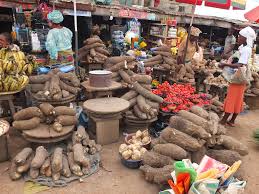Based on data released by the statistics office on Wednesday, Nigeria’s headline consumer inflation increased to a new 28-year high in April, reaching 33.69% year-over-year from 33.20% in March.
The administration of President Bola Tinubu has cut fuel and energy subsidies and devalued the native naira currency twice, which has contributed to inflation in the most populous country in Africa.
To stem the pressure on prices, the central bank has increased interest rates twice this year, the most recent increase coming in about 17 years.
The governor of the central bank has said that interest rates will remain high for however long it takes to reduce inflation. Next week, the bank will convene again to determine interest rates.
According to a National Bureau of Statistics data, the largest contributor to inflation in April was still food and non-alcoholic beverages.
The majority of the inflation basket, food inflation, increased to 40.53% annually in March from 40.01% in March.
Due to price pressures, millions of Nigerians are struggling to satisfy their basic necessities and are facing the worst cost of living crisis in decades.
Laptops 1000Tinubu has offered a pay increase for state personnel of up to 35% to relieve some of the strain on government employees.
In addition, his government has launched a direct cash transfer initiative and given out at least 42,000 tonnes of cereals, including millet and corn, to assist those in need.




















